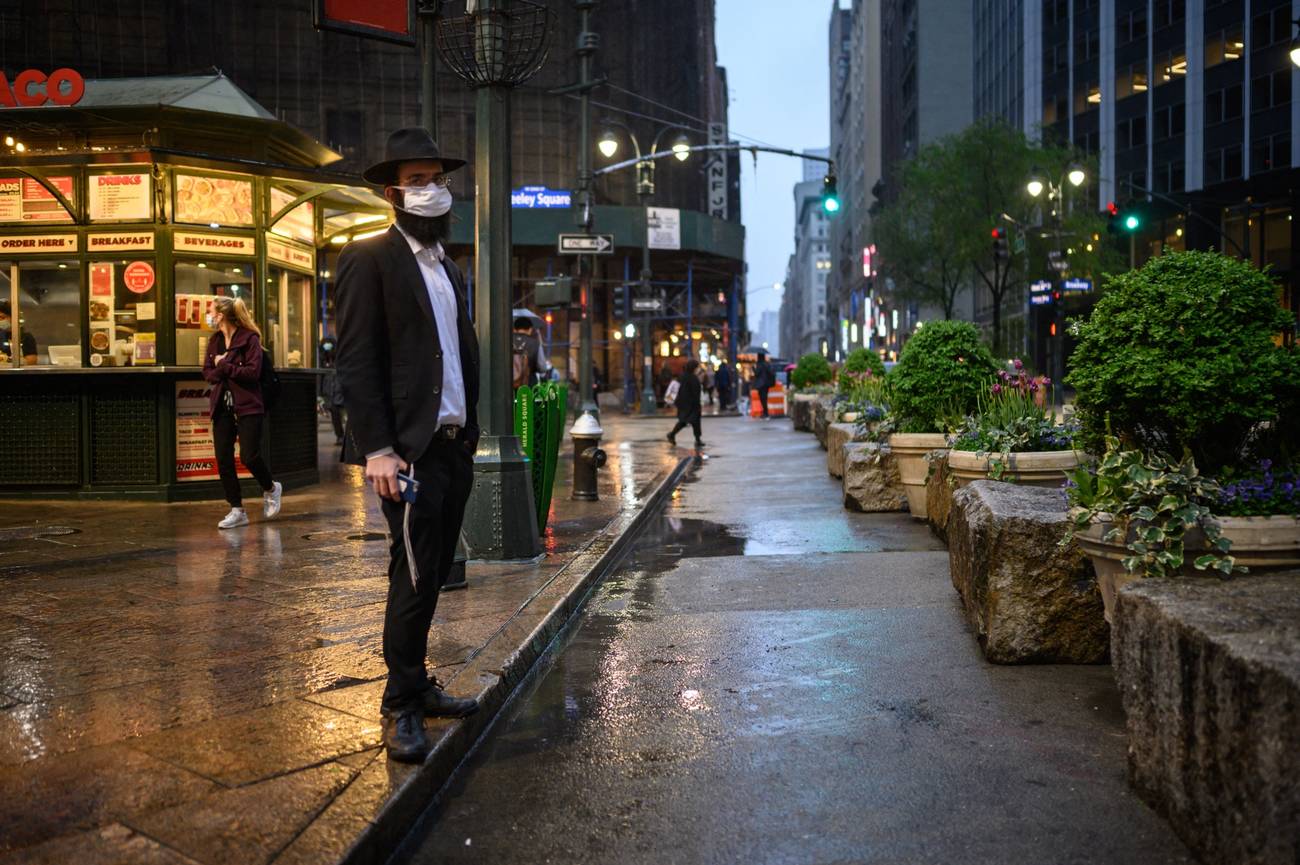Antisemitic Attacks Spike in NYC as COVID-19 Fades
A string of violent incidents targeting Jews points to a breakdown in public safety across the five boroughs



New York City has been in the grip of overlapping crises for the past year, but until recently, the pandemic, rising crime rates, and political dysfunction hadn’t led to the seemingly random attacks on Jews that occurred almost weekly throughout 2018 and 2019. Now that might be changing. Over the past month, the city has seen a number of incidents that hint ominously at how its wider breakdown could start to impact Jewish communities.
In an assault that has received disconcertingly little attention, a knife-wielding assailant attacked a young Orthodox Jewish family from Belgium near Battery Park in early April. The suspect, recently released from prison after serving 10 years for attempted murder, slashed his male victim in the head, requiring him to get 12 stitches, while also injuring his wife and young child, according to the Jewish Telegraphic Agency.
Later in the month, in the Hasidic section of Williamsburg, the driver of a minivan backed into a group of five Jewish men, their ages ranging from 11 to 82, toppling them like bowling pins. The driver fled the scene but was spotted by the Jewish community’s Shomrim neighborhood watch a few days later and arrested by the NYPD. (None of the victims was seriously injured.)
Among the spring’s potential antisemitic hate crimes, the highest-profile was a rash of synagogue defacements in Riverdale, the northwestern corner of the Bronx near where the Westchester suburbs begin. Over a few days in April, four synagogues were targeted in acts of petty vandalism—the attacker ransacked the Riverdale Jewish Center, Young Israel of Riverdale, Chabad Lubavitch of Riverdale, and the Conservative Synagogue Adath Israel, destroying doors and windows and desecrating a number of prayer books.
Some community members say they are satisfied with the official response so far. “We really felt we had the ear of law enforcement and city and local leadership, and that they were extremely focused on this issue,” said Steven Exler, senior rabbi of the Hebrew Institute of Riverdale (that synagogue was not targeted, but Exler said there was close coordination on the response to the attacks across the Riverdale community). Exler rightly emphasized that the vandalism was the work of a single person, and that the defacements ceased as soon as the alleged guilty party was arrested.
Mateo Levin, a young congregant at Adath Israel whose tweets about the damage to the synagogue’s outdoor prayer space drew widespread attention to the severity of the incident, noted that the New York Police Department had been guarding local Jewish institutions after the attacks. “From what I’ve seen shul attendance has not dropped,” Levin said.
It is, in some sense, speculative to connect these incidents. The three attackers had no ties to one another or to any organized group. That they were motivated by hatred of Jews is suggested only by their choice of target, not by any statements made or other insight into their beliefs or mentality.
Yet these incidents could also be the residue of a broader social disorder, itself the product of a set of policy choices made by New York’s political class. The Riverdale synagogue attacker was released from jail just hours after his arrest, thanks to New York’s recent bail reforms. Perhaps his release would have been inevitable anyway, given the city’s notably spotty record on punishing attackers who allegedly target Jews. The NYPD makes only one arrest for every four events that the department classifies as antisemitic hate crimes; the past decade saw just 21 prosecutions for criminal antisemitic hate crimes in Manhattan, representing a mere 6% of such incidents during that period.
The conditions in which last month’s attacks took place would appear to go beyond New York’s Jewish communities. Nearly everyone is getting less safe in the five boroughs. Crime increased citywide in early 2021, with shootings almost doubling year over year. Random attacks on Asian Americans, possibly fed by the same deterioration in public norms, have also surged in 2021, attracting national attention and outrage, most likely because of their seeming novelty.
That novelty is likely to wear off fast, as there’s been a 73% rise in hate crimes in New York this year compared to the same four-month period last year. Sinking baselines for public safety, a criminal justice system rapidly reorienting its priorities, and a society still coping with a cascade of dislocations imposed by pandemic-related restrictions, have combined to create a citywide feeling of helplessness and drift. Threats to Jews might be resurfacing because of factors that threaten vast numbers of other New Yorkers, too. These developments don’t seem to be going anywhere, and may well be getting worse.
Armin Rosen is a staff writer for Tablet Magazine.